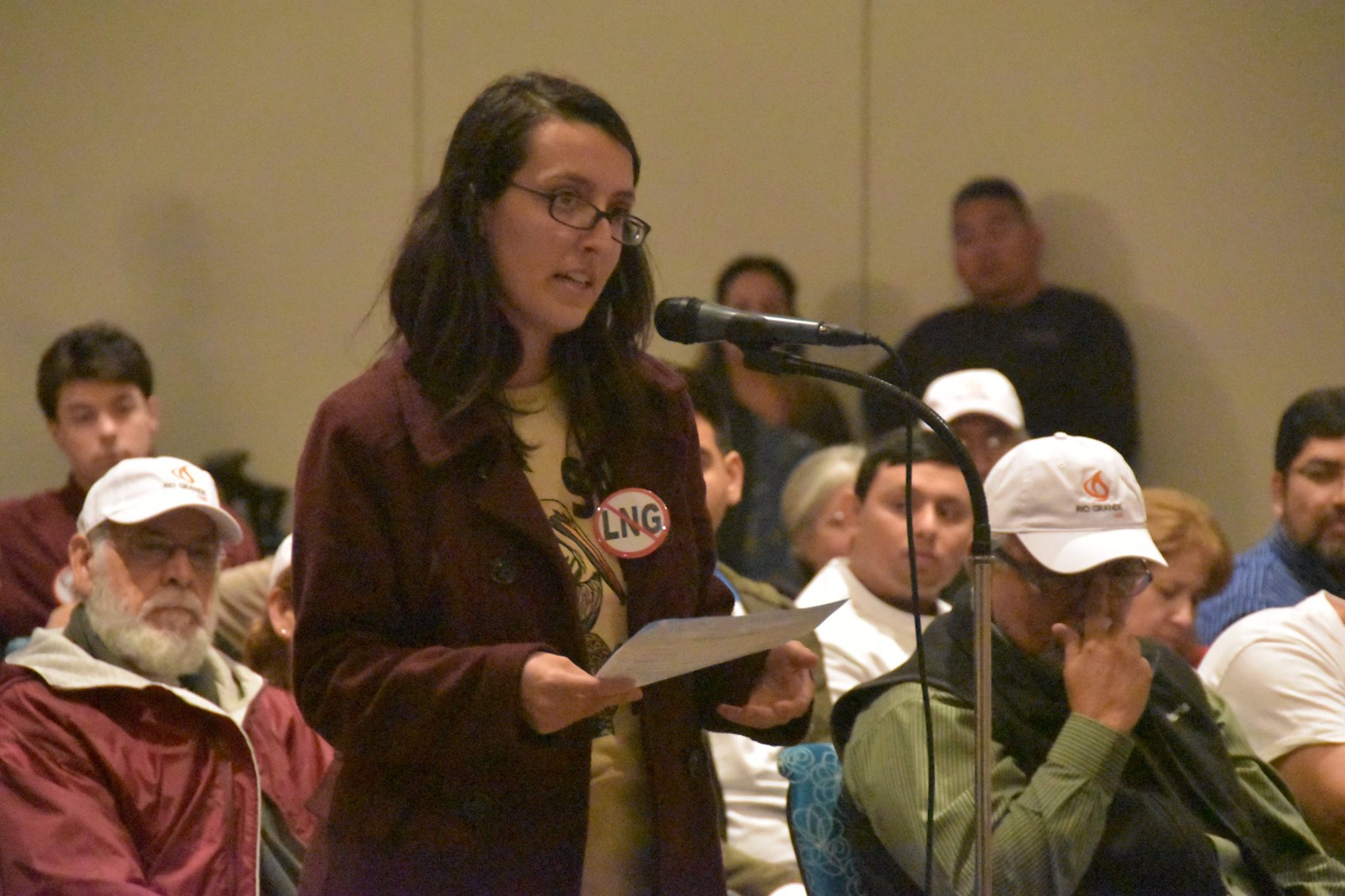If all goes well, this Wednesday will mark a milestone for the fight against Rio Grande LNG, one of three proposed liquefied natural gas (LNG) export terminals in the Rio Grande Valley. The Texas Commission on Environmental Quality (TCEQ) will decide whether to grant petitioners a contested case hearing on the company’s air pollution permit.
If built, Rio Grande LNG would export gas extracted by hydraulic fracturing, aka “fracked gas” from South Texas and West Texas.
The TCEQ is expected to decide at its Dec. 12 public meeting whether to grant the city of Port Isabel, Laguna Vista, and several local residents a contested case hearing (CCH), which is a formal hearing to protest the state permit that will allow Rio Grande LNG to pollute their air.
We’re hoping that they’ll vote to APPROVE the CCH requests this week, but it’s not guaranteed and, evidently, there is some internal disagreement at TCEQ.
To understand how we got here, here’s a brief recap of this year’s events in relation to Rio Grande LNG’s air permit. There’s a lot of legal jargon, but the point is: We’ve been waiting nine months for some good news on this front!

Sierra Club community leader Melinda Melo makes a statement in front of the TCEQ at the April , 2018 public meeting in Brownsville, Texas
In March, over 100 people attended TCEQ’s public meeting for Rio Grande LNG in Brownsville. Several cities and organizations, including the City of Port Isabel, and Laguna Vista, Save RGV from LNG, Texas Rio Grande Legal Aid (TRLA) on behalf of shrimpers and fisherman, and Vecinos Para el Bienestar de la Comunidad Costera (VBCC), requested a contested case hearing.
A few weeks later, we delivered more than 1,800 comments from Texans across the state to the TCEQ headquarters in Austin opposing the air permit.
Fast forward half a year. Last month, the TCEQ Executive Director sent a letter to all individuals that requested a contested case hearing, stating that living five miles from the proposed site of the fracked gas terminal is too far away to be affected by its impacts.
And this is where the internal TCEQ disagreement is: Also in November, the TCEQ Office of Public Interest Counsel sent a letter to the TCEQ commissioners suggesting that the CCH requests of organizations and individuals that would be impacted by Rio Grande LNG be granted. On December 3, Save RGV from LNG and TRLA attorneys sent a follow-up comment to restate their CCH requests.
Now we’re just a couple days away from the public meeting that will hopefully determine what should be obvious: Those that would be directly impacted by these polluting projects have the legal right to voice their concerns and be heard.
If built, Rio Grande LNG would be the biggest polluter in the Rio Grande Valley. The fracked gas export terminal plans to spew more than eight million tons of greenhouse gas pollution per year and other pollutants such as particulates and cancer-causing volatile organic compounds.
The TCEQ has a bad reputation of rubber-stamping gas permits, so here’s to hoping there’s a change in the status quo.